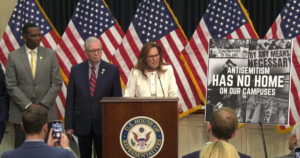
Study Utilizing Medicaid and Medicare Data to Investigate Autism
Efforts to uncover the causes of autism might soon reach new heights as Health Secretary Robert F. Kennedy Jr. unveils a plan to harness medical data from Medicaid and Medicare recipients. This endeavor, however, faces skepticism from experts who doubt its potential to uncover the disorder’s origins.
The collaboration involves a data-sharing arrangement between the National Institutes of Health (NIH) and the Centers for Medicare and Medicaid Services (CMS), which collectively hold claims data for approximately 150 million Americans. “We’re using this partnership to uncover the root causes of autism and other chronic diseases,” Kennedy stated.
According to the Health and Human Services (HHS) department, the initiative will comply with privacy laws to safeguard sensitive health data. However, further details about the program were not disclosed by the department.
Researchers will delve into various aspects of autism using the data, such as diagnosis patterns, healthcare outcomes, demographic and geographic access to care, and the financial impact on families and healthcare systems. Yet, Helen Tager-Flusberg from Boston University, who leads a coalition questioning Kennedy’s approach, argues that this data may not be sufficient for identifying autism’s causes. “Enough research has been done at this point to know there is no simple magic bullet,” she commented, emphasizing the need for research into genetics and early life factors.
Kennedy’s directive for a comprehensive study into autism aims to identify its causes by September, with a promise to uncover at least “some” contributing factors. This initiative coincides with rising autism rates in the U.S. The Centers for Disease Control and Prevention (CDC) reports that 1 in 31 children are affected, an increase attributed to heightened awareness, especially among those with milder symptoms.
Kennedy, however, has publicly dismissed this explanation, labeling autism a “preventable disease” influenced by environmental factors. Autism, typically recognized as a complex brain disorder rather than a disease, has no singular cause. While genetic links have been established, factors like parental age, maternal health, and chemical exposure have also been considered.
Concerns have arisen among autism researchers over Kennedy’s comments, fearing they might bolster the debunked theory linking vaccines to autism—a stance Kennedy and former President Donald Trump have previously endorsed. The HHS plans to pilot this new platform to investigate chronic conditions and treatments. More details can be found in the CDC report.
Associated Press writer Lauran Neergaard contributed to this report.
Originally Published:






